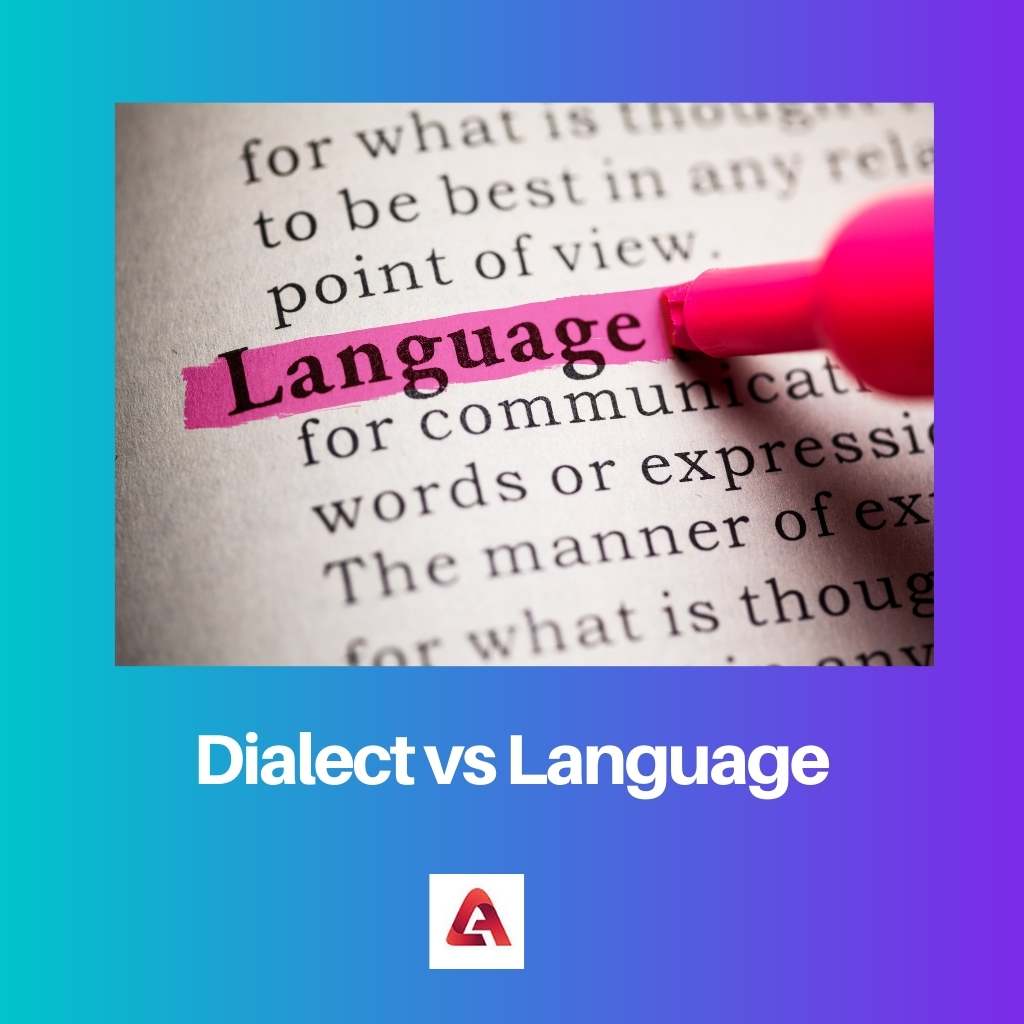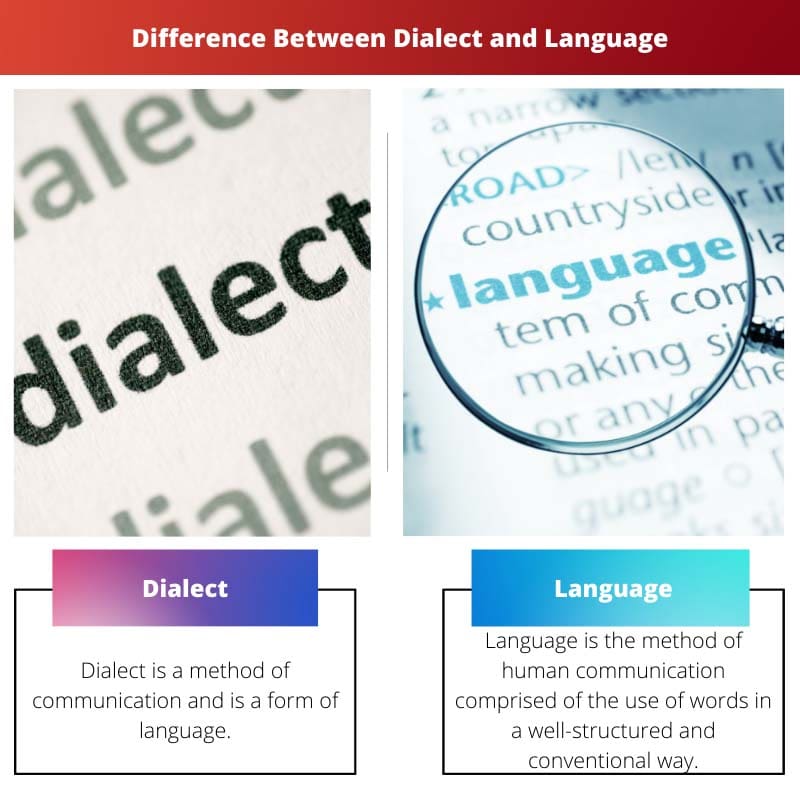Human communication is possible because many languages are spoken all around the world. People talk about various languages but never get into the root concept of this communication.
Key Takeaways
- Dialects are variations of a language that occur within specific regions or among certain groups of people, while languages are larger systems of communication.
- Dialects may differ in pronunciation, grammar, vocabulary, or syntax, but speakers of different dialects can still understand one another.
- Languages, in contrast, are distinct enough that speakers of different languages can only communicate effectively with translation or learning the other language.
Dialect vs Language
The difference between dialect and language is that a dialect is a method of communication used by only a religion, a social group of people, or a society. On the other hand, language is a method of communication that is widely used and represented by a country.

Dialect is a method of communication and is a form of language which is used by only a particular group of people, including various religions, political parties, urban areas, social groups, etc.
Language is the method of human communication comprised of the use of words in a well-structured and conventional way. Languages are used globally by countries and large communities.
Comparison Table
| Parameters of Comparison | Dialect | Language |
|---|---|---|
| Definition | A form of language. | A method of communication. |
| Types | Standard dialects and Non-standard dialects | Spoken language and Written language. |
| Intelligibility | Mutually intelligible. | Not mutually intelligible. |
| Cultural Connections | Signifies a particular religion or a social and cultural group. | Doesn’t signify shared cultural experiences. |
| Expression | Mostly spoken and not written. | It can be both spoken and written. |
What is Dialect?
The term Dialect originated in the 16th Century in Ancient Greek. Dialect is a communication method and a form of language used by a group of people specified by religion, political party, cultural group, and historical urban area, etc.
This is also a factor of various dialects of the same language. Some common dialects include Southern English, Black English, Hillbilly English, etc.
There are two types of dialects:
- Standard Dialect: This is the type of dialect that is recognized by institutions such as government bodies or designations.
- Non-standard Dialect: This is the type of dialect that has historically not been recognized by a government body. Simply put, all dialects that are not standard dialects are considered non-standard.
What is Language?
The term language originated from French. Language is a method of communication comprised of the use of words in a well-structured and conventional way.
There are about 5000 to 7000 languages spoken around the world. Out of all the languages, Sanskrit is known as ‘the mother of all languages’, and Tamil is the oldest language.
According to linguistics, languages are classified into two kinds:
- Genealogical Linguistics: Two languages are considered genetically related if both of them originated from a common ancestral language. For example, Spanish and Italian originated from Latin, so they are genetically related.
- Typological Linguistics: This classification groups the languages based on their structural similarities. Chinese and Vietnamese are two such languages.
Languages represent some nations and are considered a means of unity among people.

Main Differences Between Dialect and Language
- Dialects are not recognized in dictionaries, grammar, etc., whereas languages are globally recognized.
- Two dialects can share overlapping cultural history, while two distinct languages can not.

- https://onlinelibrary.wiley.com/doi/abs/10.1002/9781405166256.ch7
- https://books.google.com/books?hl=en&lr=&id=xmMQAwAAQBAJ&oi=fnd&pg=PA1&dq=dialect&ots=8TaBLfTnWW&sig=2YRdhwYYHIM7PysVr5wQ1NxMXjQ

Insightful article. The differences between dialects and languages are clearly outlined.
A thoughtful and insightful article about languages and dialects.
The historical context of language and dialects is well-explained in this article.
An excellent resource for understanding dialects and languages.
This article provides a comprehensive understanding of the concept of language and dialects.
The reference links provided in the article are helpful for further exploration of the topic.
The comparison table is a very useful way to illustrate the differences between dialects and languages.
It is quite interesting to read about the differences between dialects and languages.